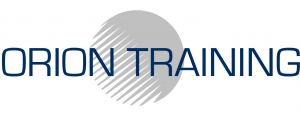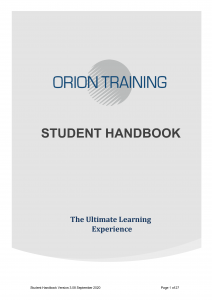Course Description
Acquire the expertise to execute calving procedures with our specialised course. Learn essential principles and practices for a safe, successful calving process, including preparing the environment, identifying risks, and adhering to health and safety regulations. Gain practical skills in recognising signs of imminent calving, monitoring cow condition, and applying husbandry procedures. Master intervention strategies for difficult calving and the use of calving ropes and chains.
Course Outcome
AHCLSK330 – Implement procedures for calving
(Unit Release 1 – 15 Feb 2022)
This unit of competency describes the skills and knowledge required to prepare for calving, observe and support cows at calving and monitor after calf is born.
The unit applies to individuals who implement procedures for calving under broad direction, and take responsibility for their own work.
All work must be carried out to comply with workplace procedures, health and safety in the workplace requirements, animal welfare legislative, regulatory and codes of practice requirements in particular the risks associated with Q fever, and sustainability and biosecurity practices.
Licensing/Regulatory Information
In addition to legal responsibilities, all units of competency dealing with animals in the AHC Training Package have the requirements for animals to be handled humanely to minimise stress and discomfort.
Orion Training (RTO Code: 30915) holds Animal Ethics Committee (AEC) approval in every state where our courses are delivered. This is based on our training practices that ensure the safe handling of livestock in accordance with individual state regulations, legislation and standards.
No occupational licensing, legislative or certification requirements are known to apply to this unit at the time of publication.
Entry Requirements
There are no pre-requisites for this course however students will need to meet the following entry requirements:
- AQF level II written and spoken English;
- Numeracy skills to meet the Foundation skills required for this unit of competency;
- Completion of a Language, Literacy and Numeracy (LLN) assessment;
- General knowledge and practical skills gained through vocational experience in farming; and
- Access to a computer (device) and internet to complete the online training component.
Training Duration and Schedule
Students complete preliminary online learning in their own time and location prior to attendance on-site. The practical component is delivered over several days depending on the facilities and equipment available and specific learning outcomes. Please contact Orion Training for more information on the duration and schedule of the course.
Training Venue and Delivery Mode
Students complete work-related training and assessment activities in an appropriate training facility using a face a face approach with their trainer.
Orion’s Livestock Breeding courses are delivered throughout regions of Queensland, New South Wales, Victoria and/or Tasmania where AEC approval has been granted. Training programs are conducted on individual farms that meet the facility and equipment requirements for training as well as strict requirements of Animal Ethics and all other relevant legislation in that State. Courses may also take place at professional facilities where the necessary facilities and equipment are in place and available.
Student candidates will be offered a place in the nearest course to their locality or in their preferred location. Confirmation of delivery location will be provided via email.
Assessment
To demonstrate competency in this unit, the candidate must provide evidence that they can successfully implement procedures for calving on at least two occasions and has:
- prepared calving environment, materials and resources to industry standards
- identified risks and applied relevant workplace health and safety and environmental and biosecurity legislation, regulations and workplace procedures, including Q fever
- carried out cow husbandry procedures and recognised signs of imminent calving
- monitored cow condition and recognised abnormal behaviour and presentations
- applied workplace animal welfare practices
- applied contingency measures for calving in the event of difficulties
- applied calving ropes and chains and used suitable calf pulling equipment
- recognised when normal assistance procedures are not adequate to assist the calving and sought specialist veterinary support is required
- recognised abnormalities and progress of calf immediately after birth
- maintained a safe and secure post calving environment.
Training Cost
Course fees are structured based on the facility where the course is delivered. Please contact Orion for more information on fees in your location. Fees will be invoiced in advance and must be paid by the agreed party prior to the commencement of the course. Please refer to Orion Student Handbook for further information about payment terms, refunds and complaints and appeals policies.
Course Materials and Equipment
To complete the preliminary online activities, Students will need access to a computer and reliable internet. On-site training incorporates a comprehensive theoretical component. Orion will provide Students with learning and assessment materials to complete the theory and the written final assessment requirements.
Orion will provide all necessary training facilities and equipment to undertake the mandatory practical training and assessment activities
Ordinarily, Students are not required to provide any materials or equipment in order to undertake training and assessment. However, where a training venue stipulates a need for Students to bring a specific item, Students will be notified prior to the scheduled start date.

